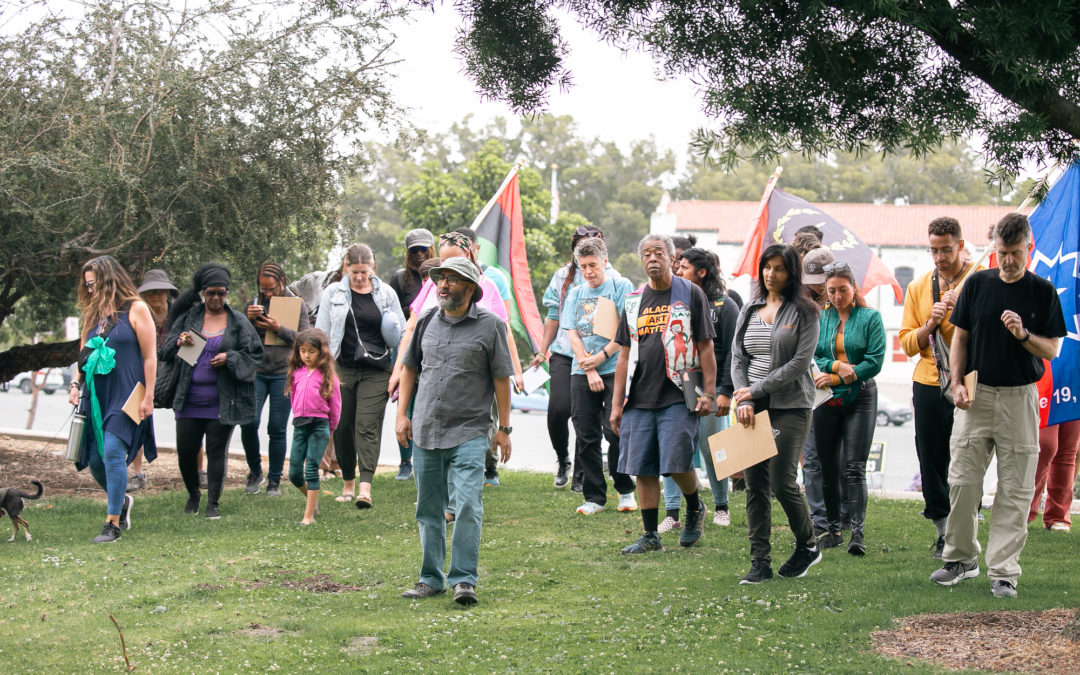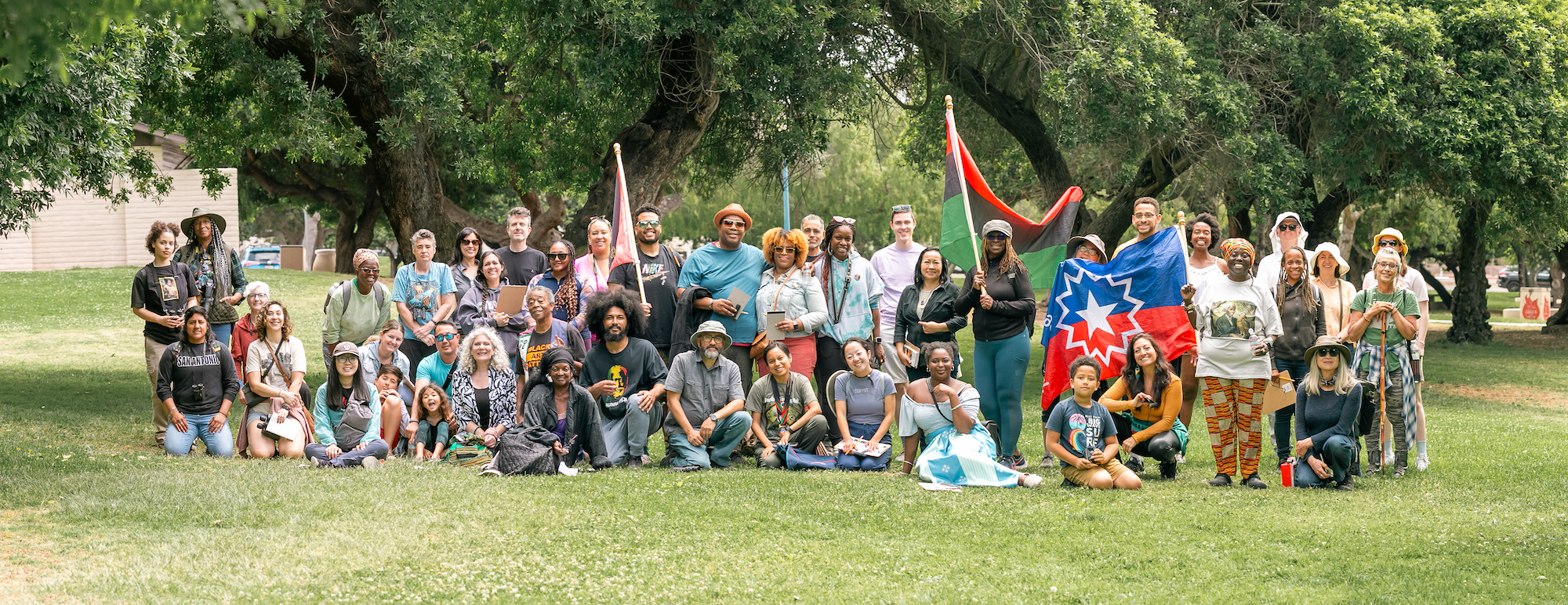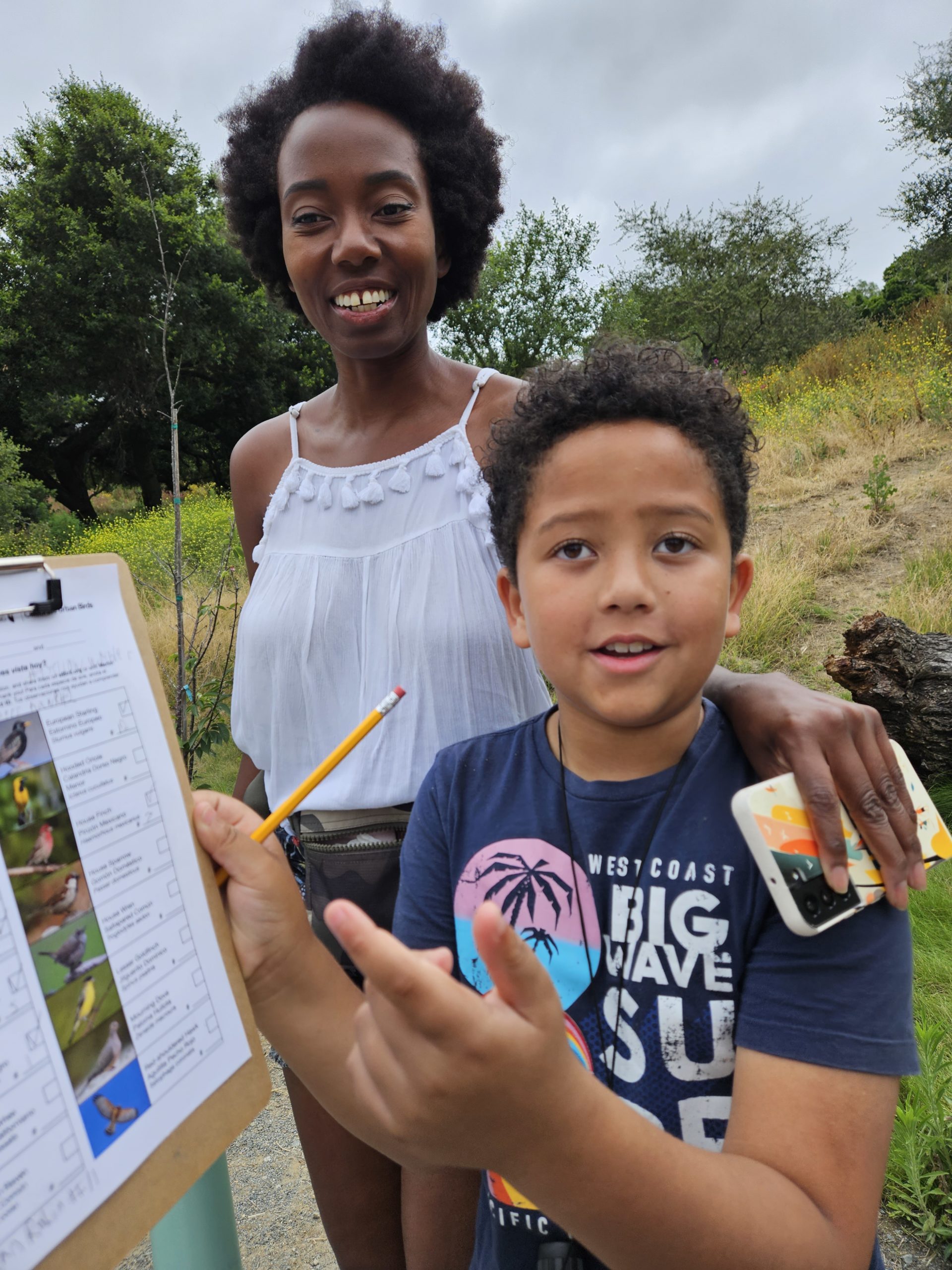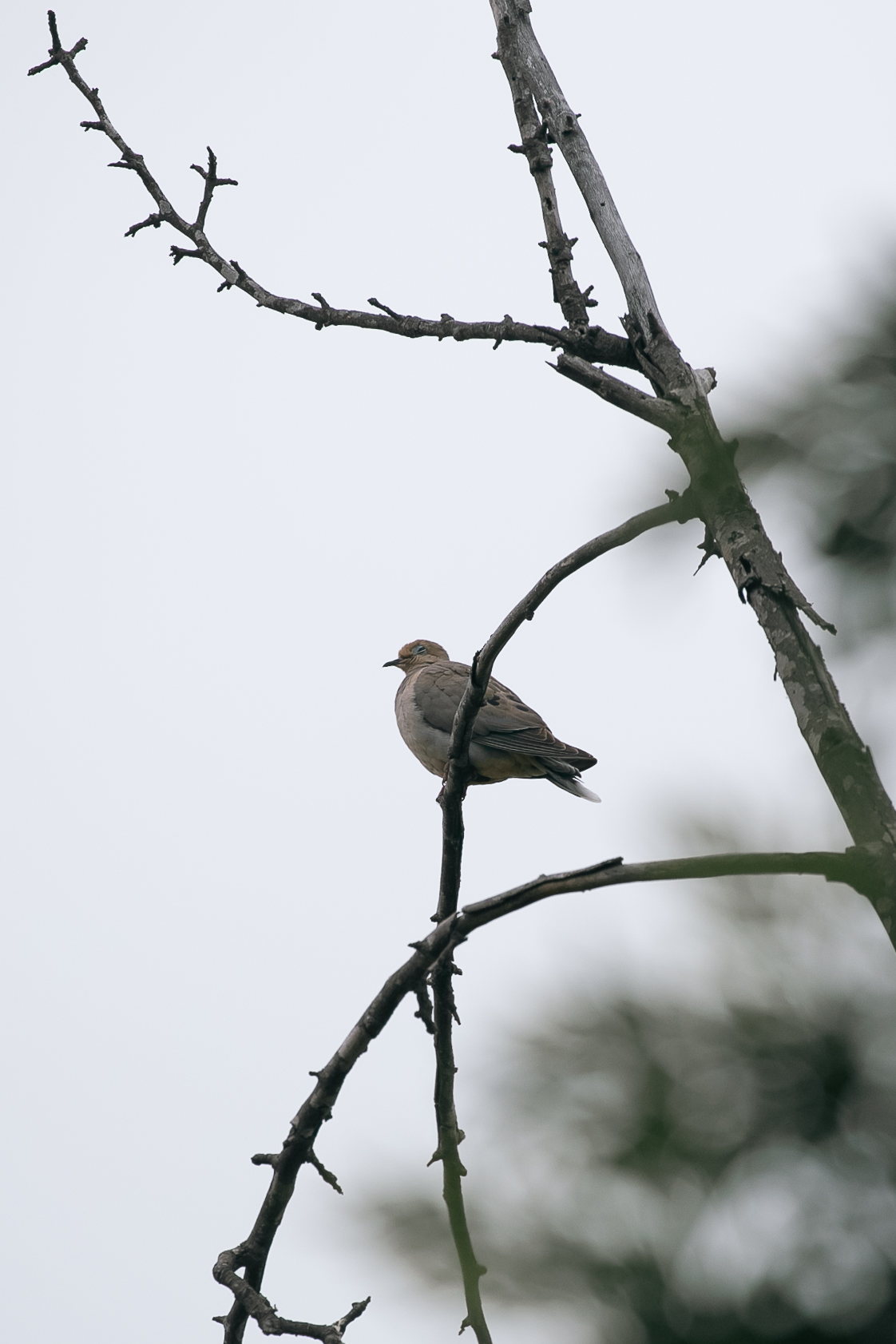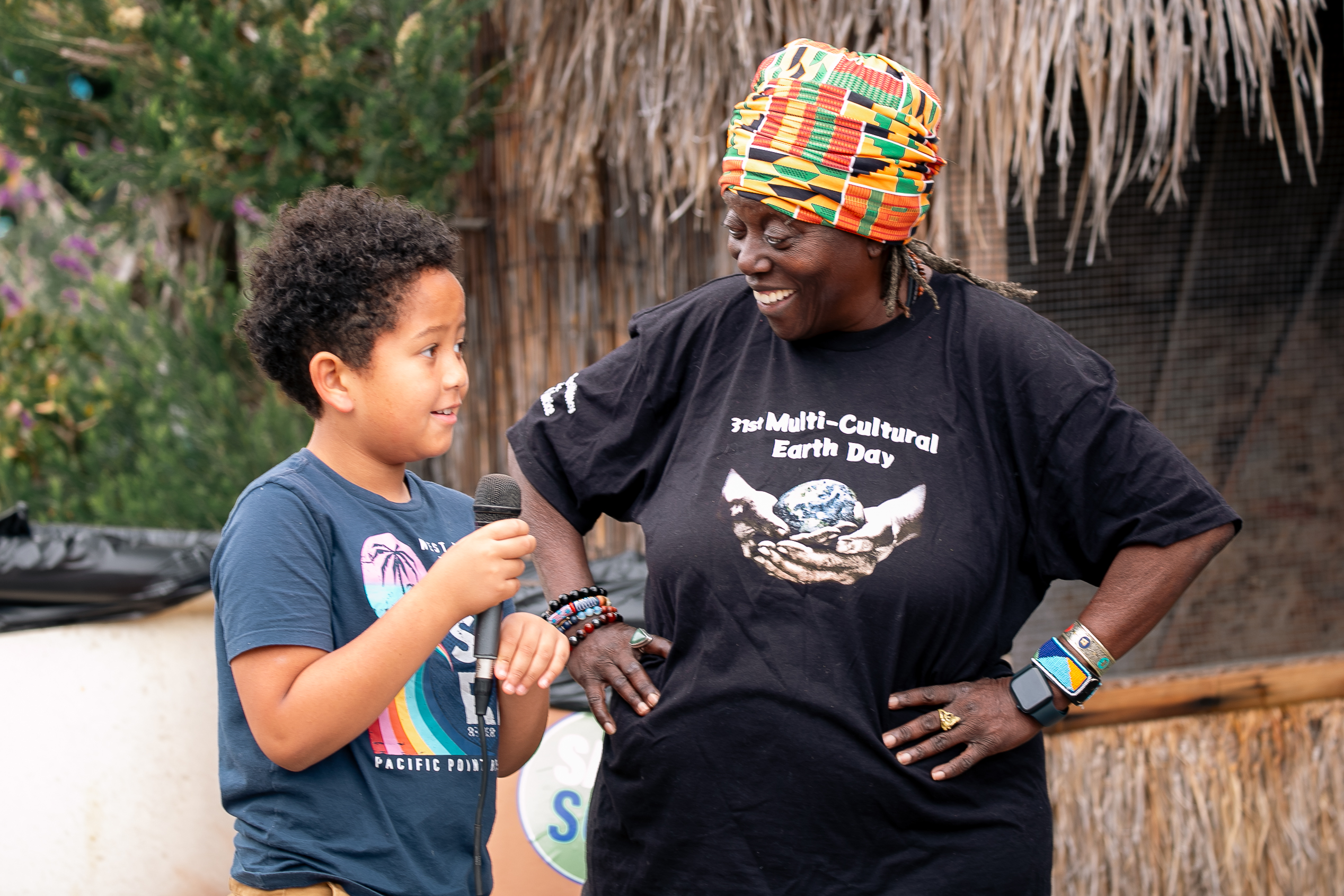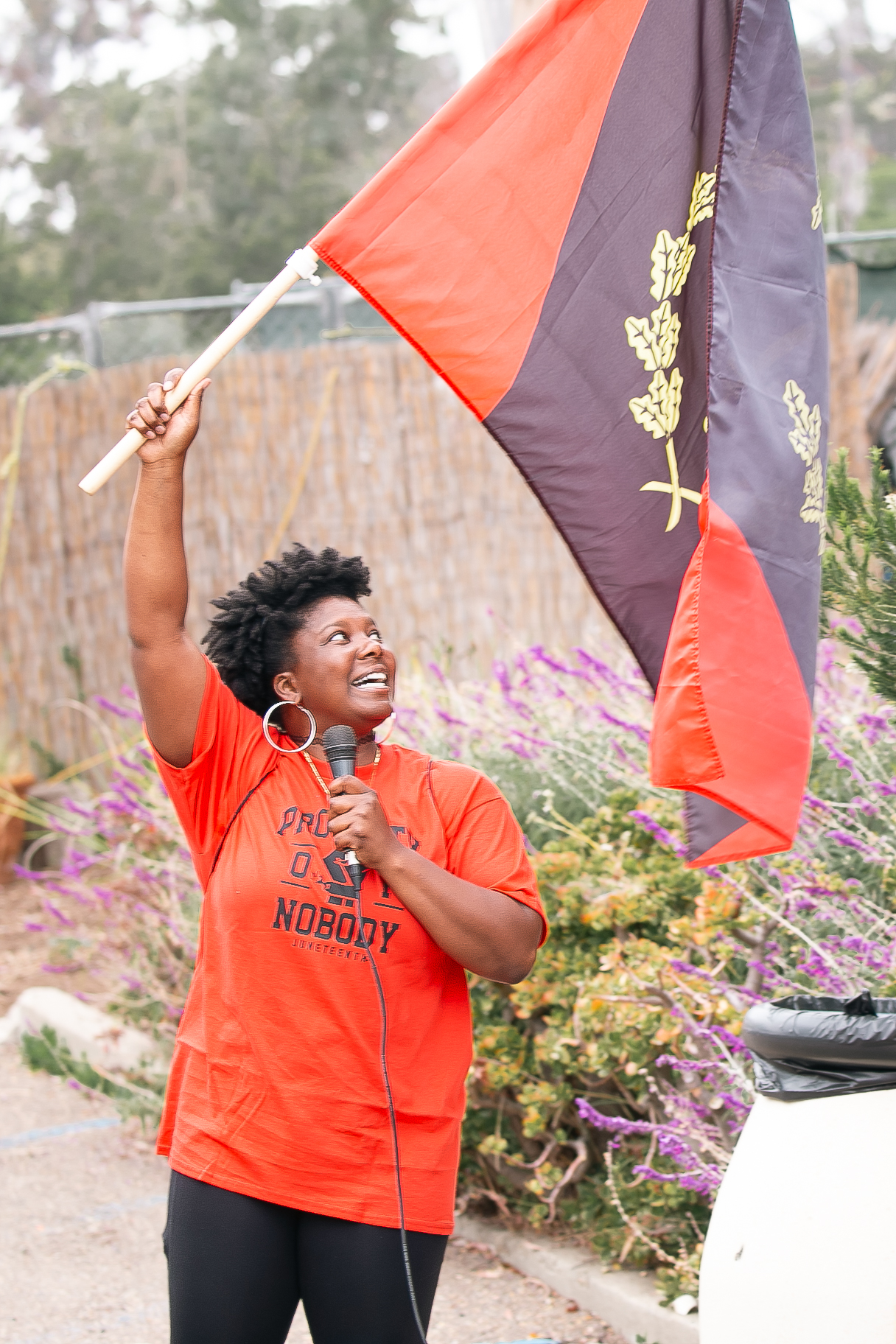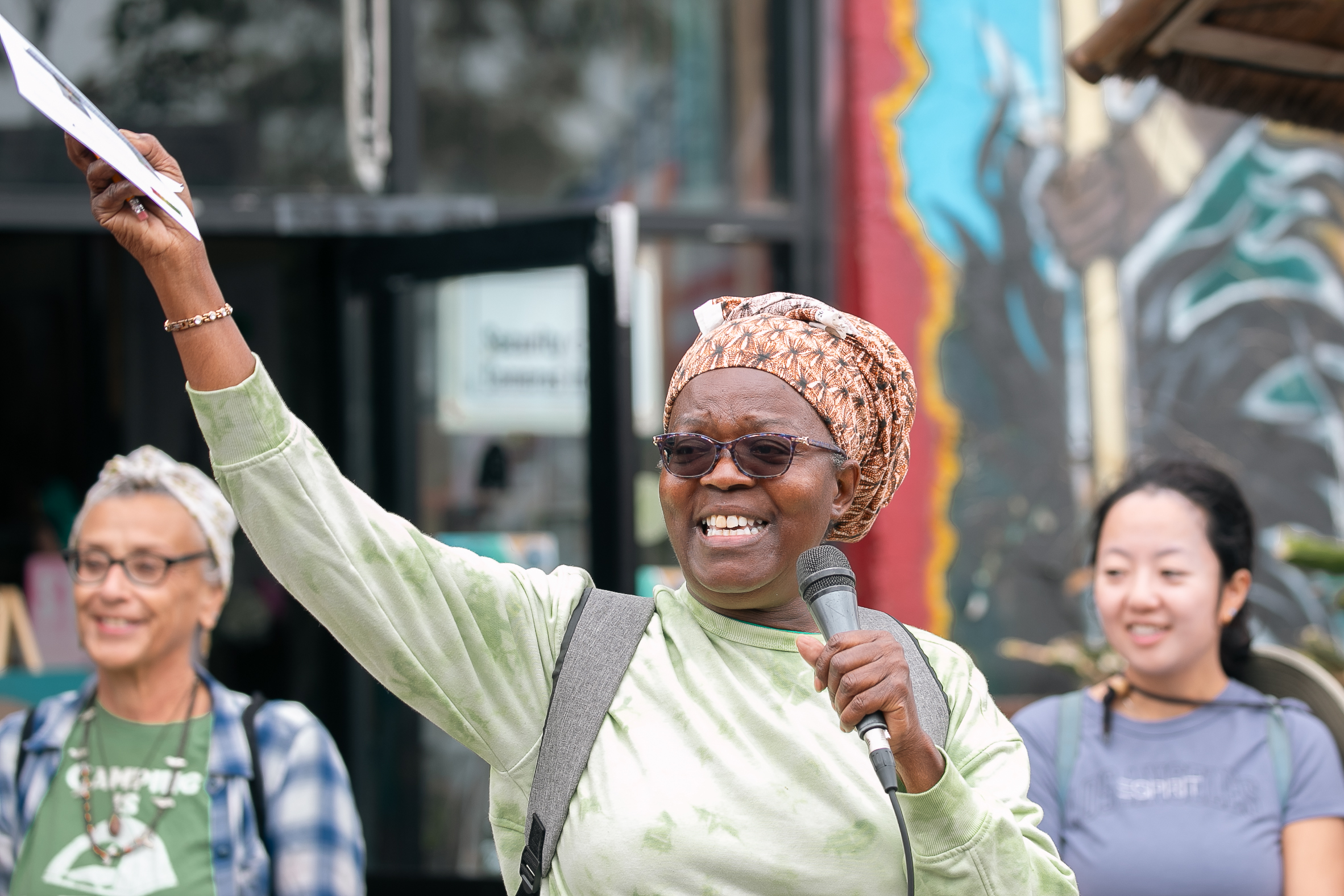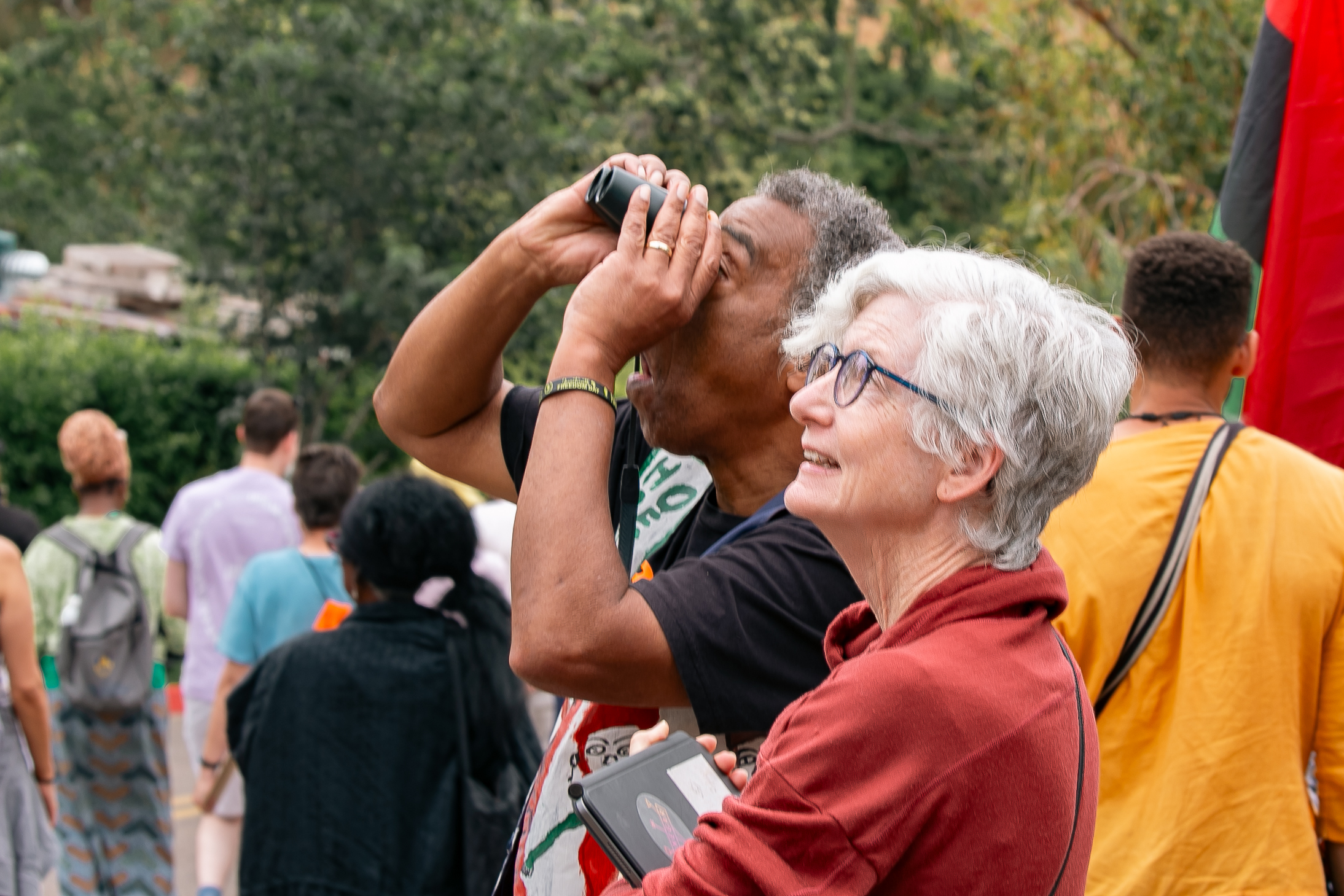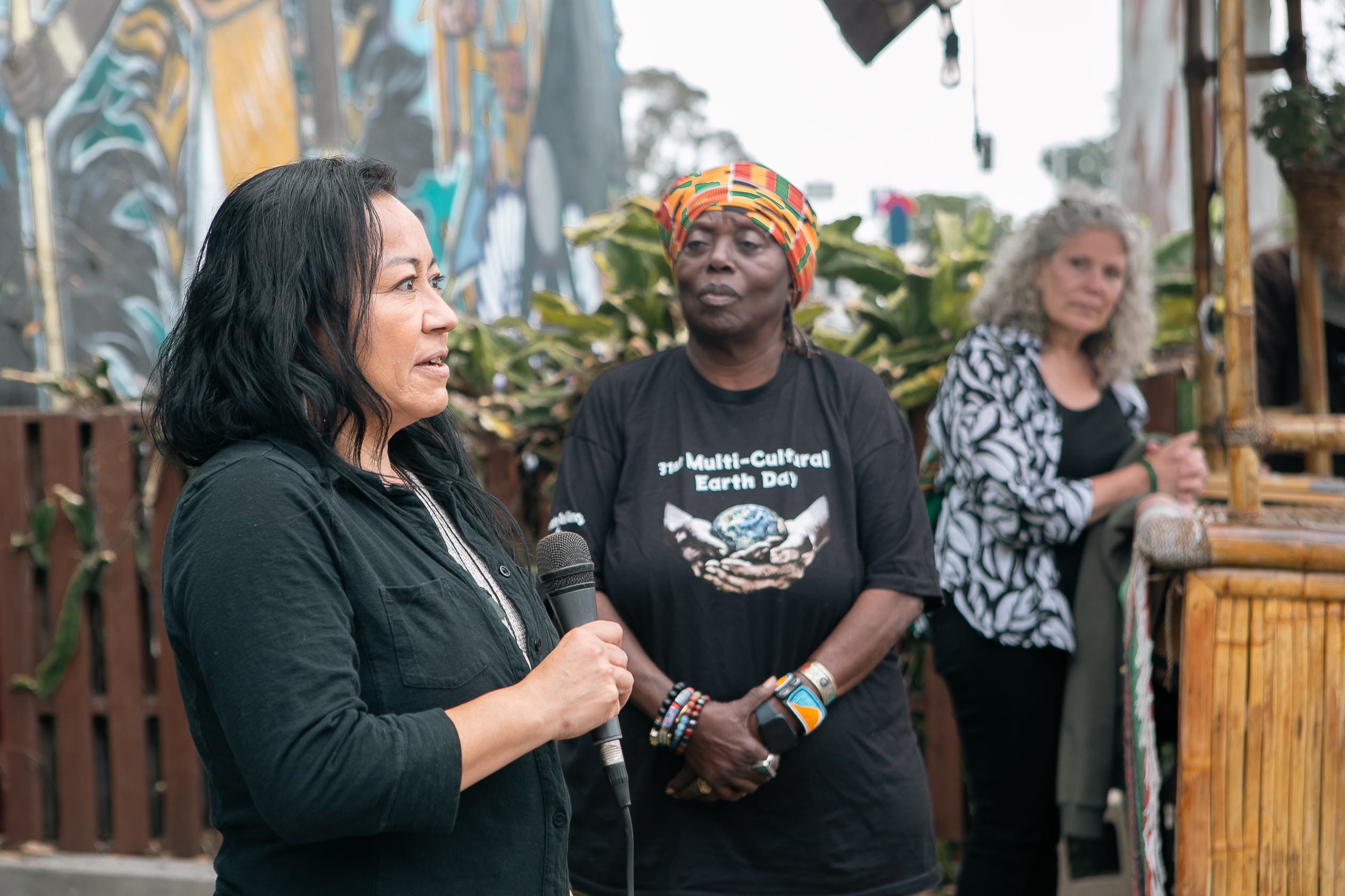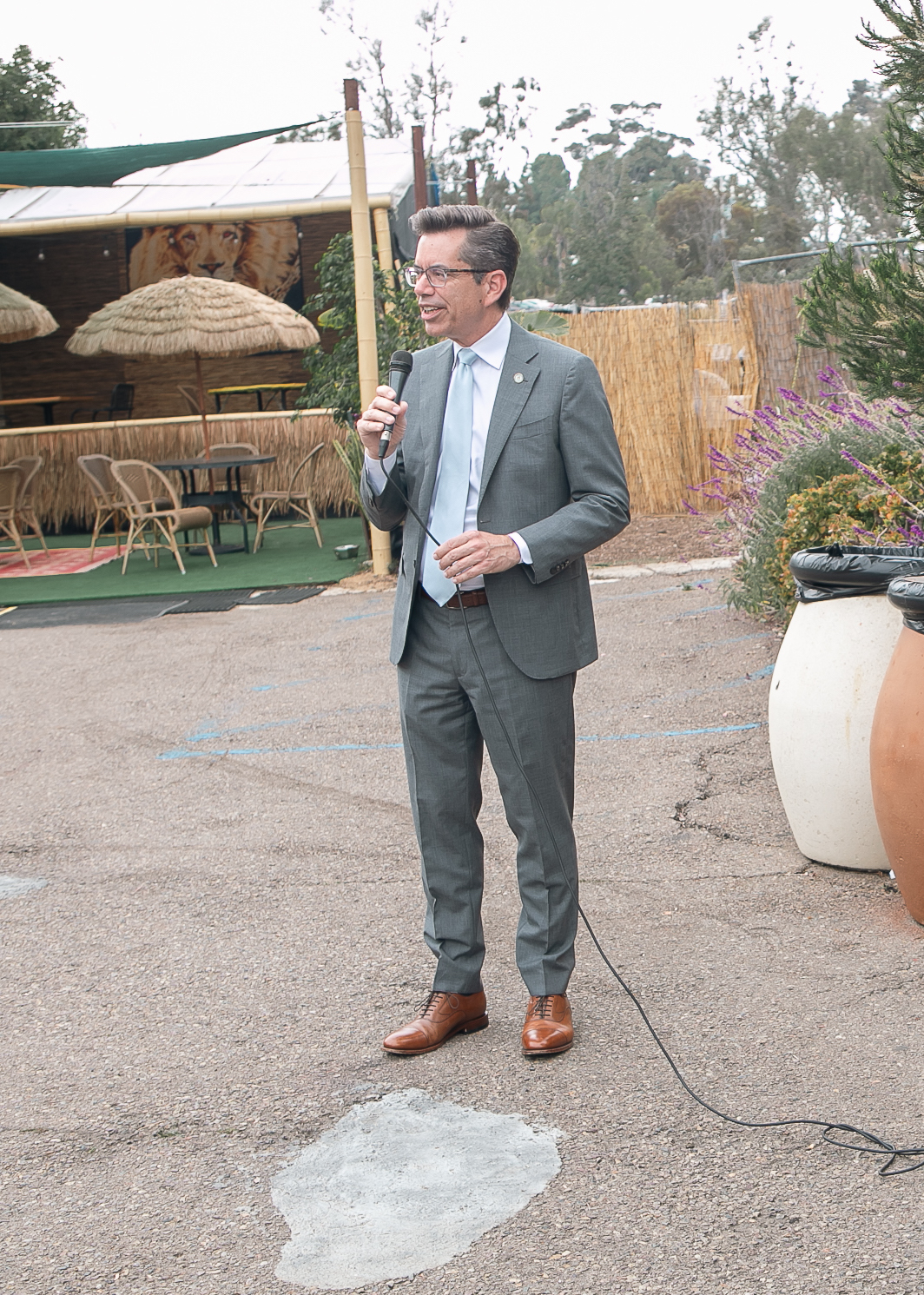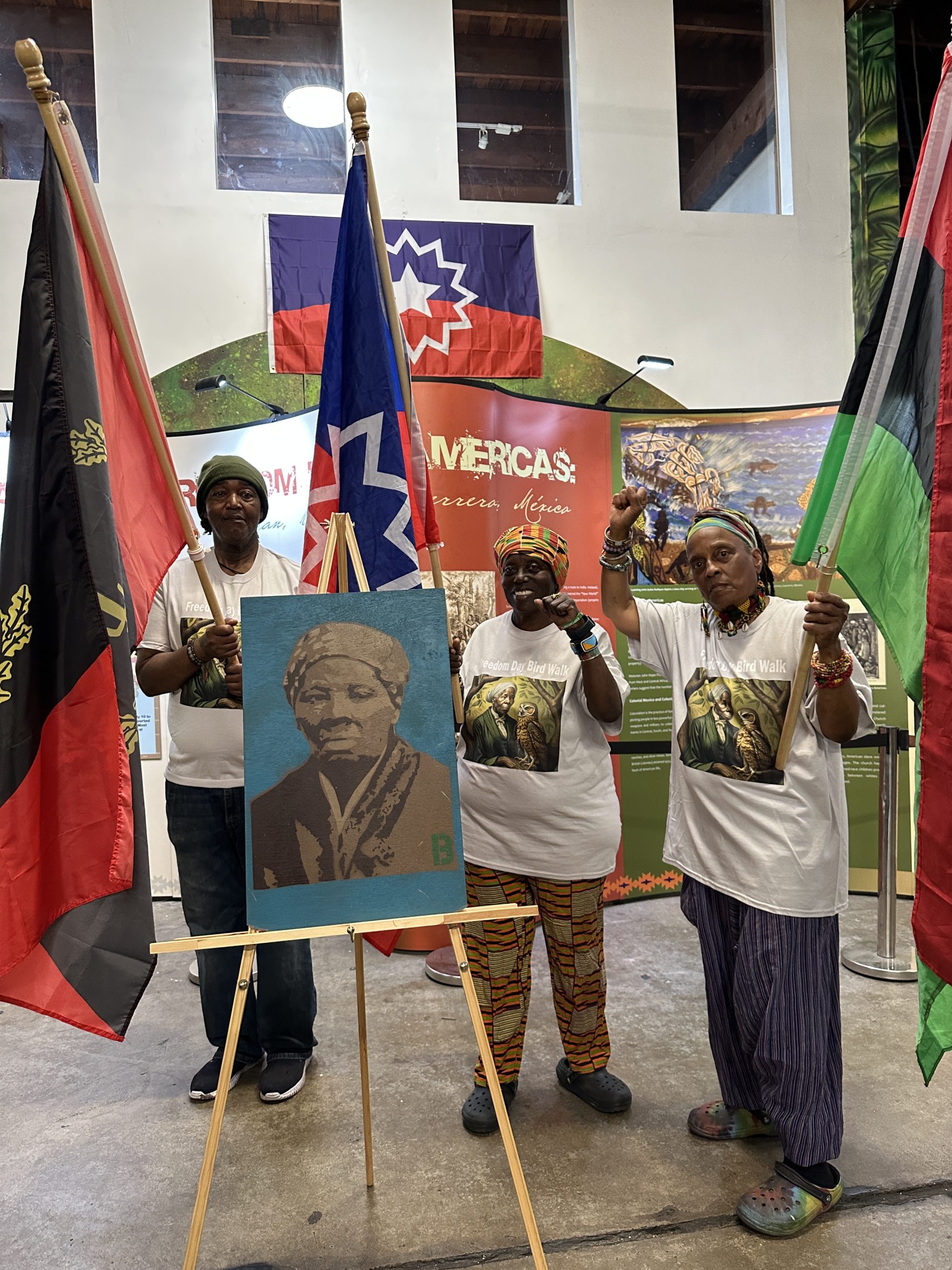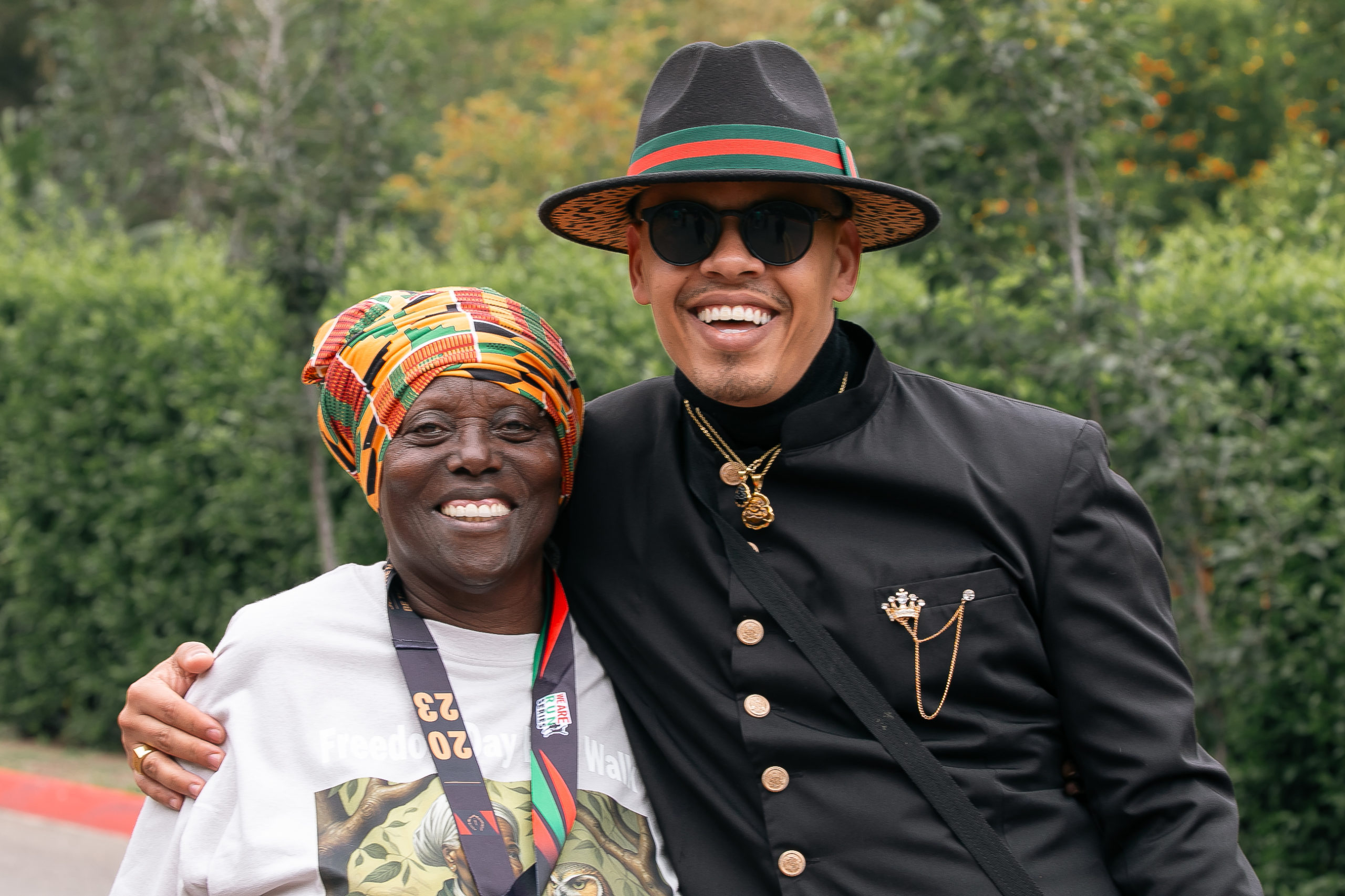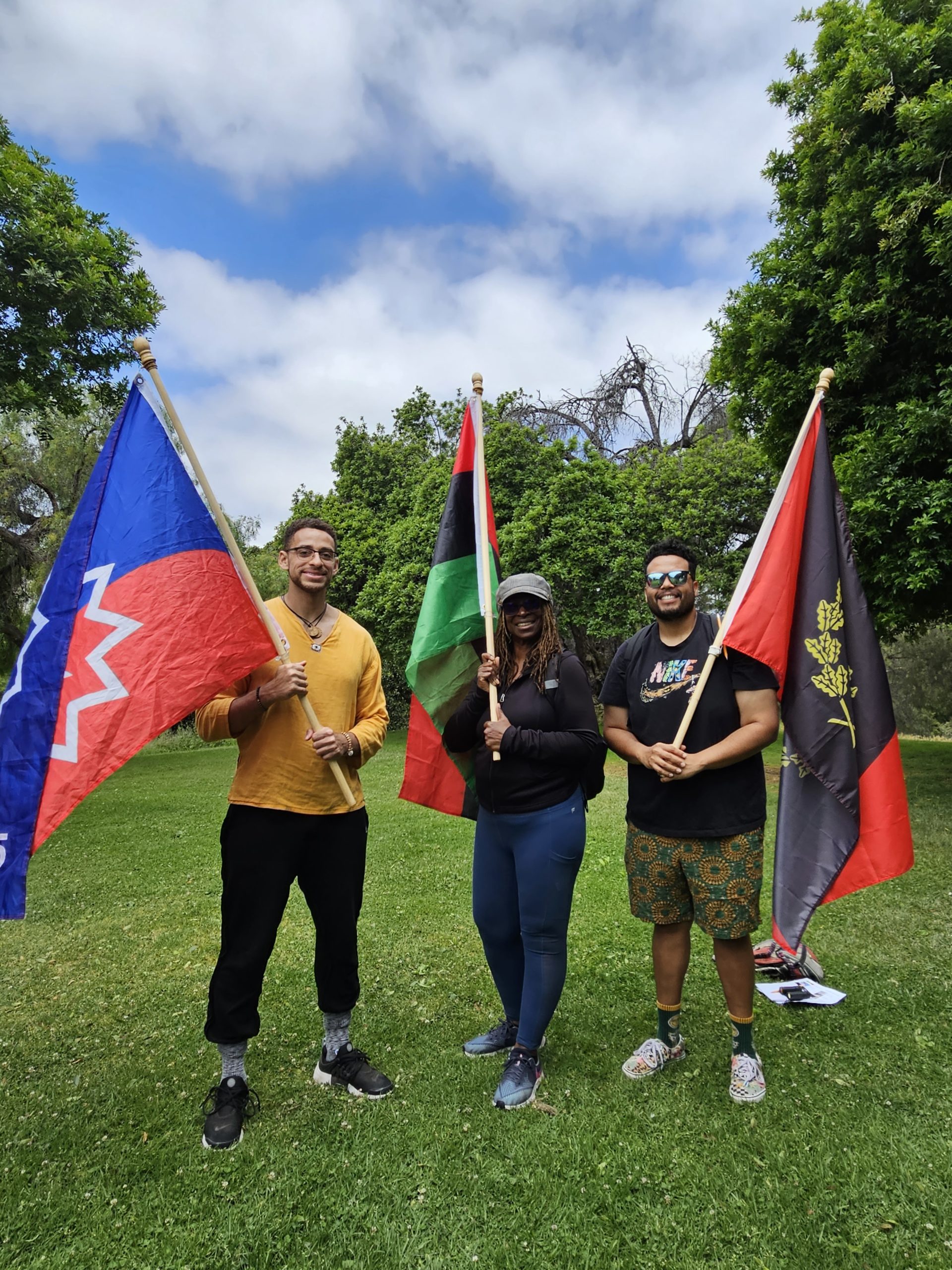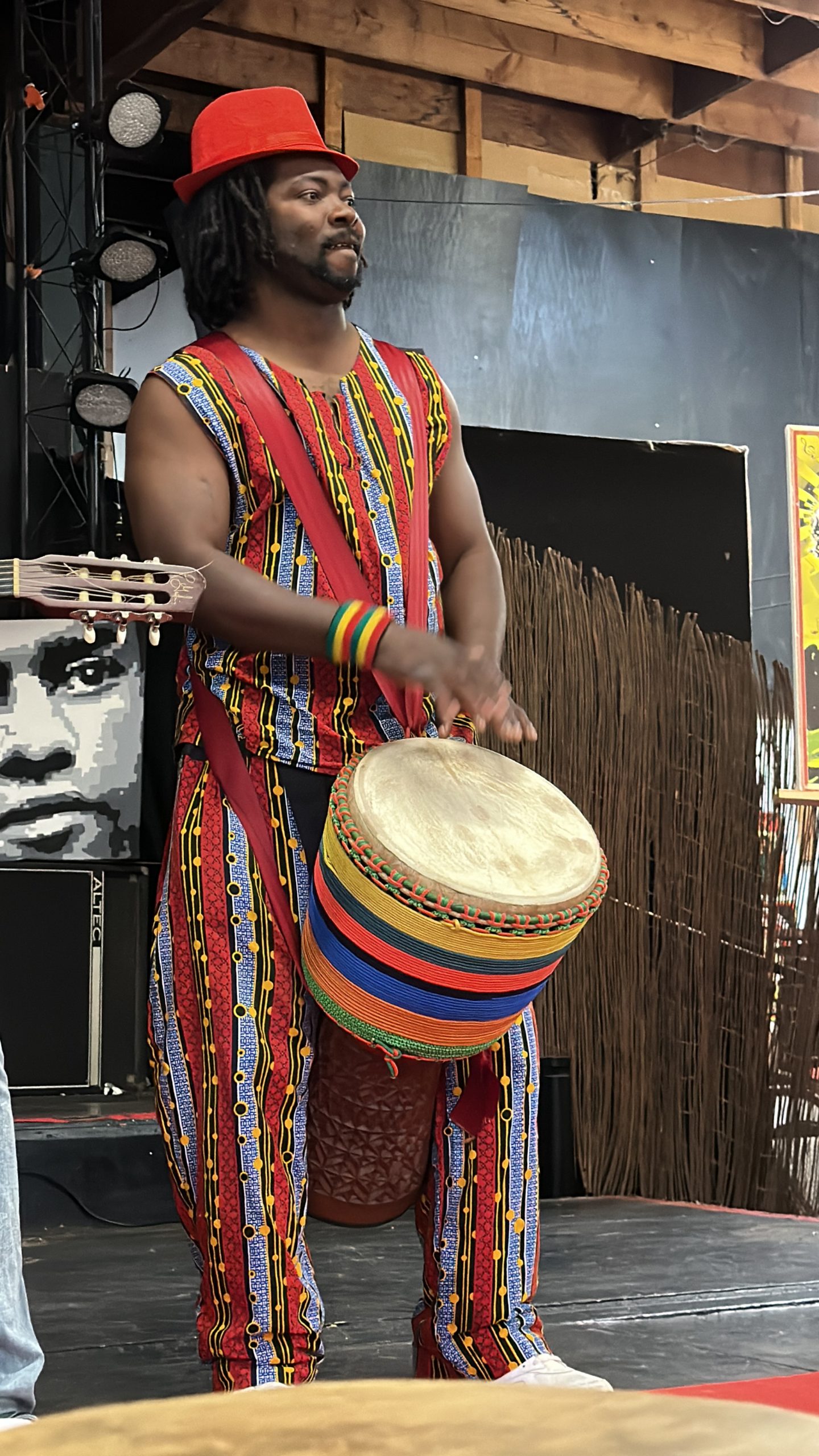On Monday, June 19th WorldBeat Cultural Center celebrated Juneteenth with its first annual Harriet Tubman Freedom Bird Walk. The event began with a land acknowledgment by Kumeyaay ethnobotanist Kristie Orosco, followed by a warm greeting from council member Stephen Whitburn. Mars Herring, founder of Fit, Black and Educated shared insightful history on African American heritage flags. Afterwards we walked through Balboa Park, we identified a variety of birds, including a Cooper’s Hawk, Anna’s Hummingbird, Mourning Dove, California Towhee, Bewick’s Wren, and a Nuttall’s Woodpecker, among others. We extend our gratitude to Kristie for sharing the wisdom of her Kumeyaay ancestors and emphasizing the importance of native habitats, as well as to Carlos for serving as our knowledgeable bird guide and providing tips to enhance our birding experience. Special thanks to Tammah Watts for joining us, highlighting the accessibility and mindfulness benefits of birding. Tammah is a mindful outdoor guide, storyteller and author of “Keep Looking Up”.
Families had a wonderful opportunity to learn how to use the Merlin App from the Cornell Lab of Ornithology, enabling them to identify birds by sight and sound, which enhanced their overall experience. Additionally, we enjoyed lively African drumming, savored delicious vegan soul food provided by OneWorldBeat Cafe (thank you, Twin and Ronald!), and had the pleasure of sharing Tammah Watts’ inspiring book with all attendees.
About Harriet Tubman
Harriet Tubman was born a slave around 1822 on the Eastern Shore of Maryland, Araminta Ross, later known as Harriet Tubman, was an American abolitionist and political activist. She escaped and made some 13 missions to rescue roughly 70 enslaved people through the Underground Railroad, a network of antislavery activists and safe houses.
She was also a naturalist, known for using an owl call to guide her family and others in their escape from slavery. Much of her early life was spent in nature, in wetlands, meadows, and woodland areas. There she developed skills that helped in her quest for freedom.
Working in timber fields, Tubman learned how to be comfortable in the woods, how to read the landscape, and became familiar with the sounds of nature. Those sounds became signals to those escaping and their allies on the Underground Railroad to know when it was or wasn’t safe to come out of hiding. Tubman used calls from the Barred Owl, or “hoot-owl,” because it would blend in with the sounds of the night and not raise suspicion.

